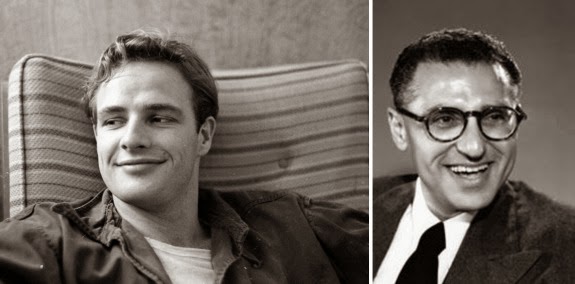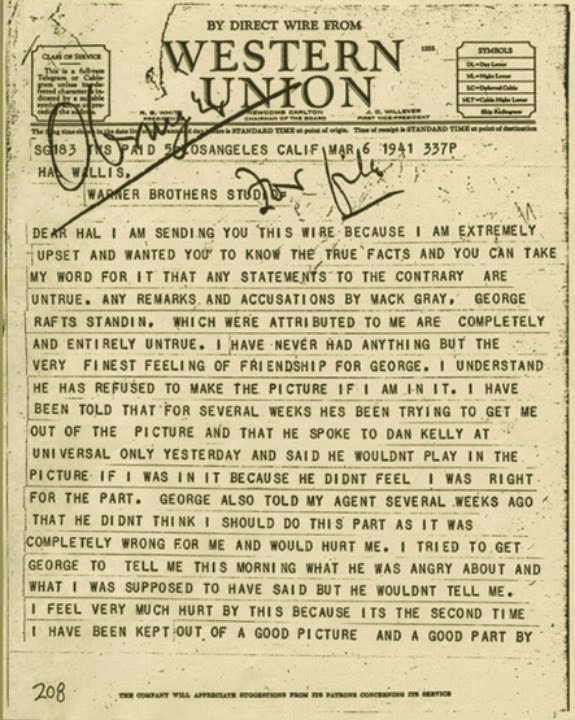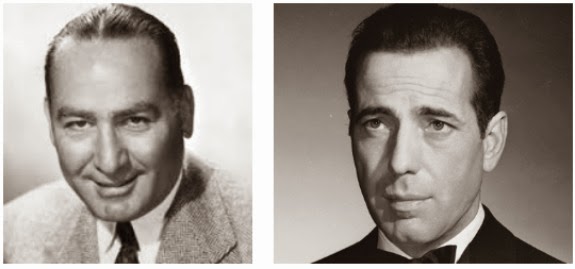In 1954, George Cukor was going to direct the film version of the Broadway musical "Pal Joey" with Marlon Brando in the lead role. Brando was very interested in doing the project with Cukor but their collaboration was not to be. The film would eventually be made in 1957 with Frank Sinatra in the lead and George Sidney directing.
In the following letter from Marlon Brando to George Cukor, Brando apologises for having missed their meeting to discuss "Pal Joey". Furthermore, he says he was "unpleasantly surprised" that the apology he had sent for missing the meeting came back. The letter is undated, but according to an article by Emanuel Levy Brando and Cukor met on 4 May 1954 to discuss the film (click here to read the article and why Cukor didn't direct "Pal Joey" after all). Brando's letter, which is full of misspellings, was possibly written around the same time.
Source: bonhams/ image reproduced with permission
Transcript:
Monday Marning [sic]
Dear George Cukor;
I was unpleasantly surprised to find this morning amongst a pile of,as yet unanswered correspondence, a letter which I had written to you a considerable length of time aho [sic], in which, I oppoligized [sic] at perhaps too much length for not appearing at your hotel on the day we had agreed to meet to discuss Pal Joey. Such an oversight placed on top of another leaves one with adistinct bad taste in the mouth. I am sorry for them both. In explaination [sic] of the first I have only to ofcer [sic] the fact that there was lidigemate [sic] confrsion [sic] (Imight as well go back to bed and get up again) what the two words preceeding the parenthisis [sic] are faintly hinting at is that there was a [redacted] ligitmate [sic] confusion wetween [sic] me and my agent as to time,telephones,tea and tardiness. Anyhow I hope you don't hate me anymore and that I'll be able to [ ] hold up my head whec [sic] I pass you on the street next time. I enjoyed meeting you sincerely hape [sic] that I perhaps someday will have the fun of working with you. In the mean time have a ball.
yours with warm regards
Marlon Brando (signed)
P.S. If you were inconveinienced [sic] on thay [sic] fatefull [sic] afternoon I hape [sic] you will give me a opportunity to [redacted] adjust the loss.



















